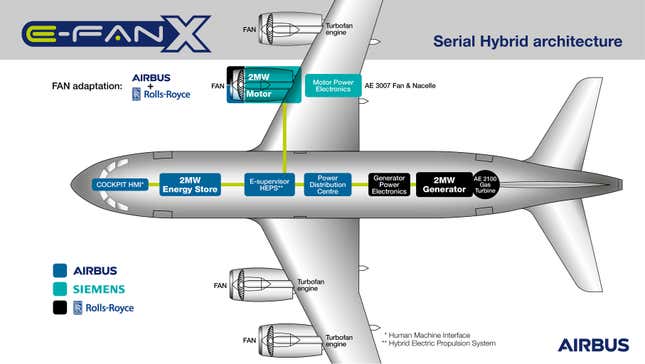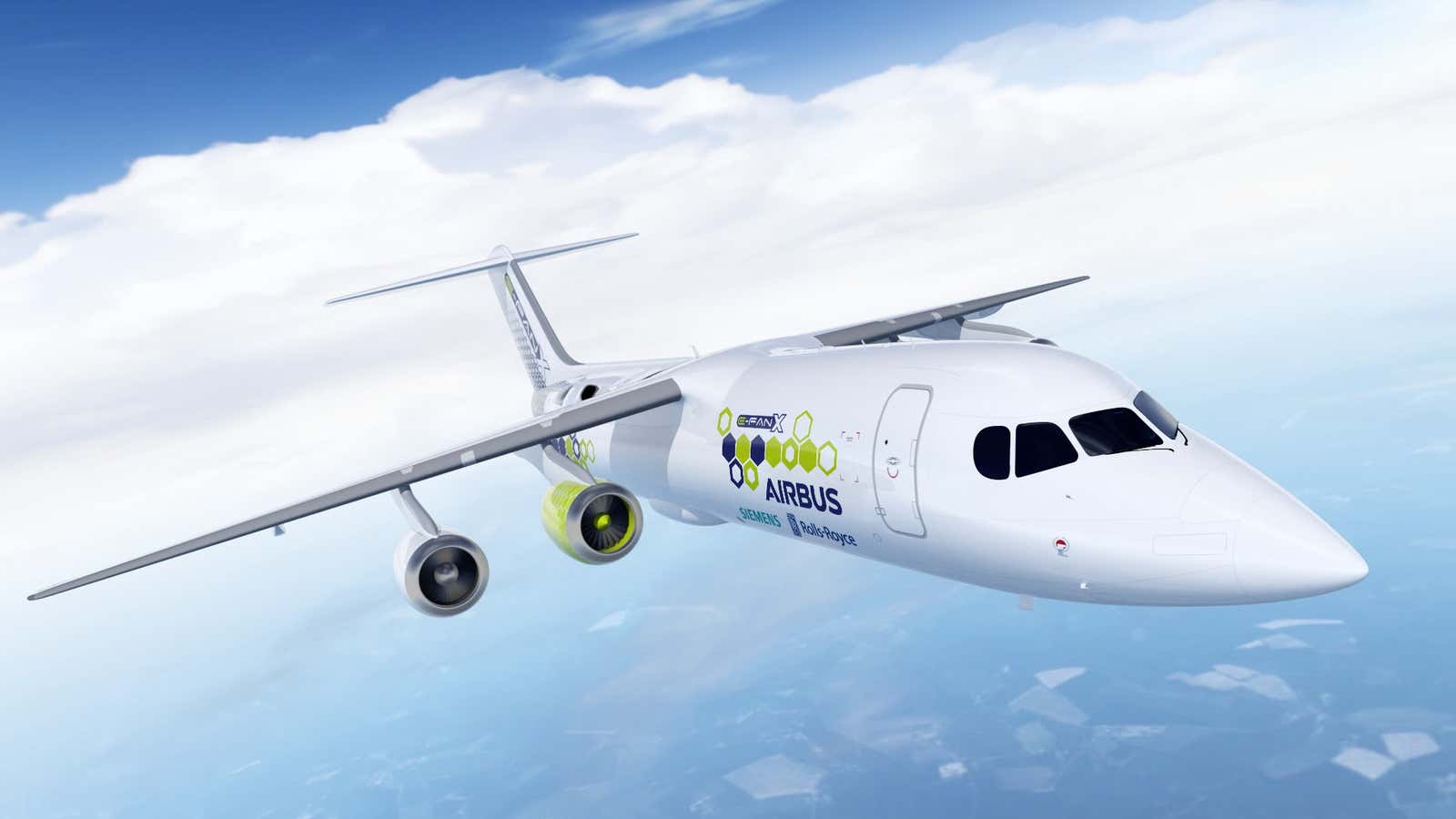The aviation industry has long had ambitions to develop an electric plane, but limitations in battery technology and regulations have consistently dampened them.
Now an aircraft maker, engine manufacturer, and power-generation supplier have teamed up to turn those dreams into reality. Today, Airbus, Rolls-Royce, and Siemens announced that they will develop a hybrid-electric plane that will be large enough to seat 50 to 100. The project, called E-Fan X, aims to have a prototype ready to fly by 2020 and bring the product to market by 2030.
Rolls-Royce will deliver a gas turbine and generator, which will create the power for the electric engine; Siemens will deliver the electric propulsion system to run on the generated electricity; and Airbus will develop the plane’s control architecture, as well as integrate the systems together in the final aircraft.

Siemens and Airbus forged a partnership last year and recently presented a prototype motor for a flying taxi called CityAirbus. E-Fan X will remain a separate collaboration but will benefit from the technical experience gained from developing the taxi.
In recent years, aviation startups have begun pursuing electric and hybrid-electric aircraft. What sets E-Fan X apart is the size of the plane. Seattle-based startup Zunum Aero, for example, backed by Boeing and JetBlue, aims to create a small commuter aircraft that seats 10 to 50 people. Israeli startup Eviation is targeting a fully electric six- to nine-passenger plane. Several other ventures, including NASA’s Maxwell, Alpha Electro, and China’s RX1E-A, are focused on developing two-seaters.
François Chopard, the co-founder and CEO of Starburst Accelerator, a leading investor for aviation and aerospace, told Quartz the trade-off in electric aviation is to make either a larger hybrid-electric or smaller fully electric plane. “Fully electric larger planes are not yet ready,” he said in an email.
Apart from developing and proving the technology, the project will also work with authorities to develop regulations for electric flight, spokespeople from Airbus and Rolls-Royce confirmed. Currently, there is little to no regulation of electric aircraft. “A group like Airbus has much knowledge on the certification process and should have no trouble getting the aircraft certified in the ten years between 2020 and 2030,” Chopard said.
“We’re a long way away from having planes in operation,” the Rolls-Royce spokesperson said. “That said the hope is that hybrid electric aircraft do become a reality in due course.”
